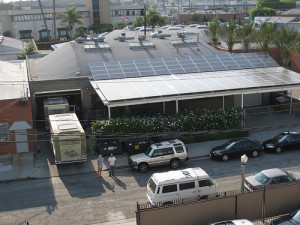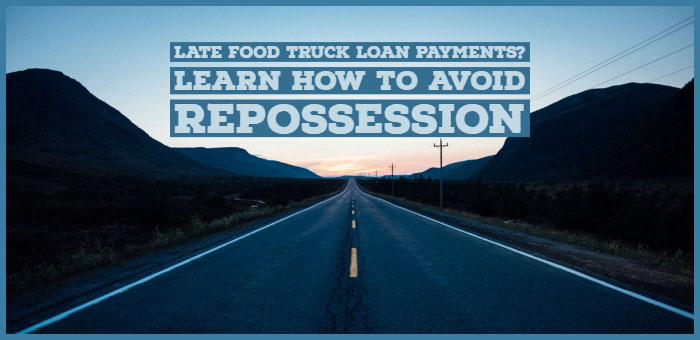In today’s economy, more than ever, people are looking for alternative sources of employment for themselves. Throw a dash of American entrepreneurship into the mix, and you will find that one of the largest growing search areas on Internet sites such as Google, Yahoo Search, and Bing! is the Mobile Food Industry. Mobile Cuisine Magazine would like to help these potential vendors and the food truck industry by providing a series of articles that will help each individual in deciding if being a mobile food vendor is the right career shift for them.
You have a menu, your truck has been ordered and the clock is ticking while you wait for your truck to be delivered. What are the other costs may be involved in operating a food truck? This article, (the third of a four part series) will provide you with this information.
Commissaries
 Outside of the initial cost of purchasing your vehicle, the usage of a commissary will tally the largest expense in your monthly bills. The commissary is the lot that you are legally required to park your vehicle in when it’s not in use. You will be able to plug your vehicles refrigerator in to use for storage at some, but in others, you will have to rent refrigerators from them to store your food in overnight. In various cities across the country, you cannot prepare your food in your vehicle so the commissary can also include the usage of a health department regulated commercial kitchen for your food preparation. Please note, it is illegal to prepare or cook your food in your home, no matter how clean you keep it.
Outside of the initial cost of purchasing your vehicle, the usage of a commissary will tally the largest expense in your monthly bills. The commissary is the lot that you are legally required to park your vehicle in when it’s not in use. You will be able to plug your vehicles refrigerator in to use for storage at some, but in others, you will have to rent refrigerators from them to store your food in overnight. In various cities across the country, you cannot prepare your food in your vehicle so the commissary can also include the usage of a health department regulated commercial kitchen for your food preparation. Please note, it is illegal to prepare or cook your food in your home, no matter how clean you keep it.
At many commissaries you can purchase food, supplies and propane. The services offered at these commissaries vary from lot to lot so we suggest you find a list in your area and speak with each one. In some cases the fees can be negotiated down as long as you sign a long term agreement with them. We have found that the average cost for commissaries will run between $800 and $1200 per month.
Insurance, Fees and Licenses
Mobile vendors, much like brick and mortar restaurants must carry insurance, hold a city business license in each city you operate in and get permitted with county health departments. As mentioned in the previous article, these costs can be covered by a rental company if you go the route of renting a vehicle that suites your needs. If you do not rent, outside of standard business insurance, you will need to carry additional liability insurance, (normally 1,000,000 in vehicle coverage). Include your commissary as an additional insured on your coverage if you are preparing food in their kitchen.
In some cities getting permitted and licensed can be as simple as applying for each. Within a week of having your kitchen and truck inspected you can receive all of the necessary approvals. However, for the majority of the country, the hoops you must jump through can be rather difficult and time consuming. Some counties require food truck owners to take classes on how to keep your vehicle clean and operate as the health department sees fit. Other municipalities require applicants to enter an annual lottery to receive a permit or license as they have limited numbers of permits they can issue. The results of these lotteries, can leave you hanging in the wind with a truck that is ready, but no way of selling your goods.
 Because of the varied costs of licensing and permitting it is hard for us to give you a definitive cost for these items. We suggest contacting your local health and business licensing departments to find their requirements and fees for starting up your food truck. One additional suggestion we will make to everyone researching this issue, is not to try operating without insurance or proper permitting and licensing. Sure, it will allow you to avoid some initial delays and headaches, but comparing what you will face should you get caught operating illegally and the fines you will have to pay, take the proper steps to follow the straight and narrow on this issue. You will thank us in the long run.
Because of the varied costs of licensing and permitting it is hard for us to give you a definitive cost for these items. We suggest contacting your local health and business licensing departments to find their requirements and fees for starting up your food truck. One additional suggestion we will make to everyone researching this issue, is not to try operating without insurance or proper permitting and licensing. Sure, it will allow you to avoid some initial delays and headaches, but comparing what you will face should you get caught operating illegally and the fines you will have to pay, take the proper steps to follow the straight and narrow on this issue. You will thank us in the long run.
Regulations
Even though Mobile Cuisine Magazine has been online for a short period of time, it is already clear what the most frequently asked question is, Parking. Where can we park? How long can we park? Can we find a parking spot and just feed the meter all day? These are all wonderful questions, unfortunately, all questions that only your local parking department must answer.
In some states if you park in a location for over an hour, you are required to get written permission from a store owner within 200 feet of your parking spot that you and your employees can use their restroom facilities. In other locales, you cannot park in the public right of way for more than 15 or 30 minutes, and in other municipalities, you can park in a meter spot, and as long as the meter is feed, you may sell your fare there. As you can see, just as the common answer for permitting will require you to get answers from your local city, township or county personnel, so too will you need to look locally to get the correct response for parking.
Taxes
Taxes and bookkeeping can be the area where many owner-operators have to give some control up to professionals outside of the food industry. Do not risk fines or even imprisonment because you don’t take the time to find a trusted team member to do your books. Having a partner who will be on top of your daily sales and keeping track of taxes owed will allow you to concentrate on your businesses day to day food operations.
Fuel
Although the goal of most food trucks is to find a parking spot and sit there all day, this isn’t the typical avenue most trucks can operate. The typical food truck has a minimum of 3-5 stops per day. Depending on the size of the area you operate in, this can vary your fuel use greatly. Earlier this month, we provided some tips to cut your fuel usage, so check out the list and follow the tips that you can. At an average of three dollars a gallon and trucks burning one gallon per 10-12 miles, you can see how conserving fuel can save you in the long run.
Please stay tuned for the final article in our series on starting a food truck business. We will provide you an inside look at the daily grind of a food truck owner, and provide you with some final things to look at to assist you in determining if owning a food truck is the right career path for you.



